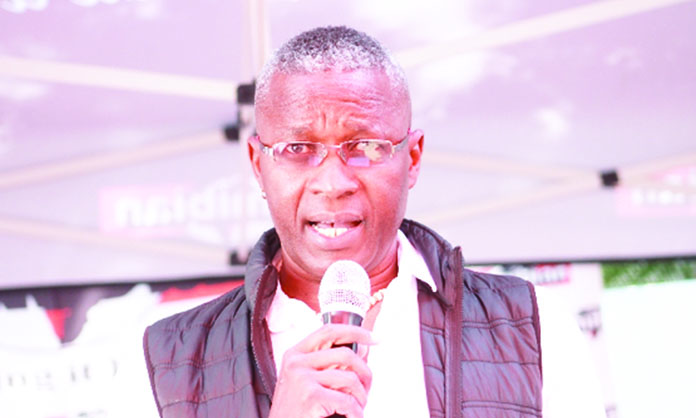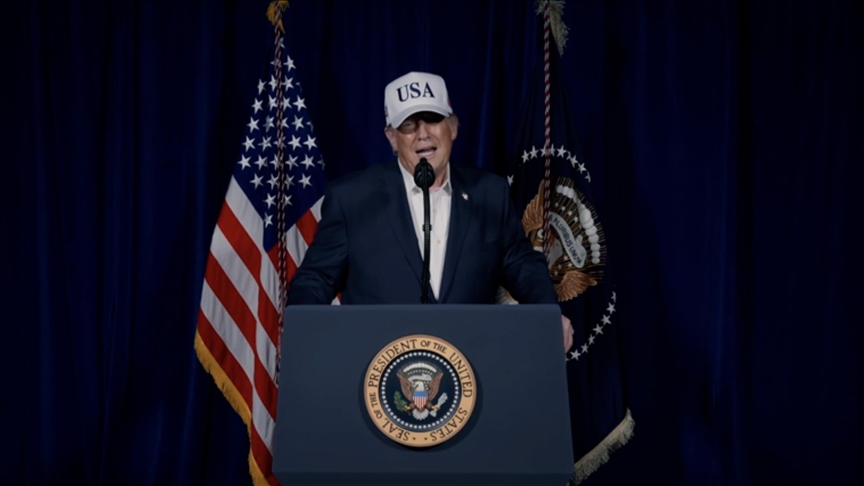The media ombudsman, John Nakuta, is set to study an editorial that allegedly led to the suspension of New Era’s managing editor, Johnathan Beukes.
The editor’s suspension allegedly came after Beukes wrote an editorial piece, titled ‘No confidence in secretive judiary’ that was published on 29 September.
Nakuta has confirmed that the Editors’ Forum of Namibia (EFN) referred the matter to him.
He says given the mandate of his office, he won’t be delving into the fairness of the suspension though.
“I’ll restrict myself to the content part of the editorial. I’ve requested the chairperson of the EFN to provide me with more detail regarding their request for the media ombudsman to review the editorial,” Nakuta says.
In the editorial, Beukes criticised the judiciary for not responding to questions New Era has sent on the appointment of Zimbabwean judge Moses Chinhengo to hear the Fishrot corruption trial.
The Namibian last week reported that there had allegedly also been complaints about a recent series of reports published by the state-owned newspaper.
The involved reports are about an alleged N$26 million in daily subsistence and travel allowances (S&Ts) allocated to members of parliament in the National Council, according to a source.
The National Council is dominated by Swapo councillors.
Other reports were said to be on infighting at the Namibia University of Science and Technology (Nust), minister of higher education, technology and innovation Itah Kandjii-Murangi’s S&T claims from institutions resorting under her ministry, and the alleged non-transparency of the Judicial Service Commission’s recommendation of judges for appointment.
EFN chairperson Frank Steffen, in a statement released yesterday, emphasised the importance of editorial freedom.
He said management’s actions against editorial staff should respect the freedom of expression.
Steffen raised concerns about New Era’s chief executive, Christof Maletsky, accusing Beukes of wrongdoing in a front-page article before any formal investigation had taken place.
“It seems strange for the chief executive officer of New Era, Christof Maletsky, . . . to publish an article on the front page, in which he not only publicly accuses the Beukes of wrongdoing, but for all intents and purposes already finds him guilty of a contravention.
“This seems to boil down to no less than an editor having shown strength of character by criticising a department of state (albeit justice), which seems to have totally disregarded his repeated enquiries,” he said.
Steffen asked why an editor was suspended based on a “transgression” that seemed more like a call for transparency from a state department.
“In the matter under review, it seems as though management single-mindedly pursued a matter which normally should have resulted in an aggrieved party having submitted a complaint to the media ombudsman,” he said.
The forum said it couldn’t ignore that New Era’s management pursued the matter without an official complaint to the media ombudsman, suggesting the absence of an aggrieved party.
Considering these arguments, the EFN decided to approach Nakuta, seeking a review of the involved article or editorial that allegedly violated the media industry’s code of ethics.
Steffen, on behalf of the EFN, appealed to New Era’s management to support press freedom not just in words but also in spirit.
Maletsky has maintained that the publication is following an internal disciplinary process.
“In any case, I also find it strange to see a statement from the EFN on New Era. When our journalist Eveline de Klerk was physically attacked in the line of duty, the EFN didn’t issue a statement, because New Era isn’t a member and doesn’t pay dues.
“What has since changed? Is it a matter of the EFN trying to be relevant? Should I now take them seriously?” he asks.
He says the EFN should allow New Era Publication Corporation to follow its internal procedures.
In an age of information overload, Sunrise is The Namibian’s morning briefing, delivered at 6h00 from Monday to Friday. It offers a curated rundown of the most important stories from the past 24 hours – occasionally with a light, witty touch. It’s an essential way to stay informed. Subscribe and join our newsletter community.

The Namibian uses AI tools to assist with improved quality, accuracy and efficiency, while maintaining editorial oversight and journalistic integrity.
Stay informed with The Namibian – your source for credible journalism. Get in-depth reporting and opinions for
only N$85 a month. Invest in journalism, invest in democracy –
Subscribe Now!











